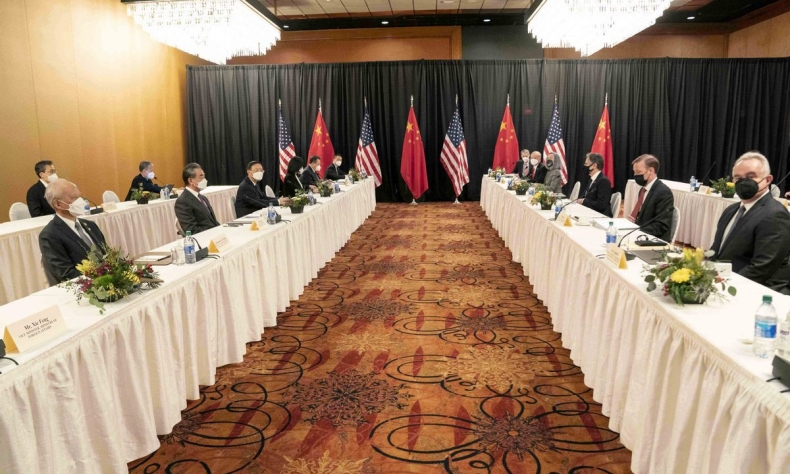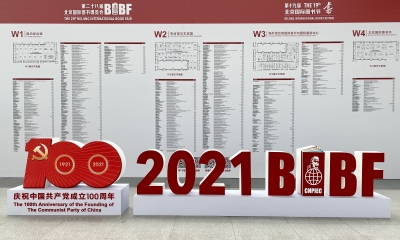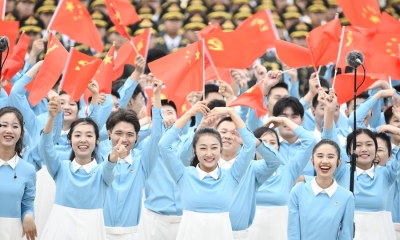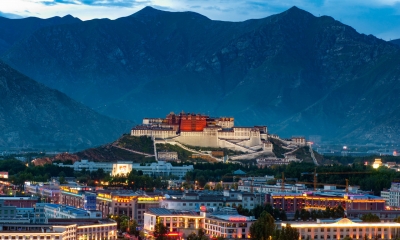China-US Relations: Towards Cooperation or Conflict?

The high-level talks in Alaska revealed the ongoing schism present in the China-US relationship. It also offered a rare insight into the competing narratives and markedly different foreign policy agendas of each side.
By the time the Chinese delegation had arrived in Anchorage for the first high-level talks with the Biden administration, the tone had already been set.
The US side, determined to enter discussions from a “position of strength”, used the preceding days to “strengthen” military alliances with China’s neighbors. It went on to use its platforms in Japan and South Korea to launch a series of provocative statements and thinly-veiled threats. Then, with just hours to go before the two-sides met, the Biden administration announced sanctions against 24 Chinese officials.
By contrast, China went into the talks with the clear intention of resetting relations, hoping that the meeting would serve as the first step in repairing the damage done by the previous administration.
“We hope that, through this dialogue, the two sides can… work toward the same direction, manage differences and bring China-US relations back to the right track of sound development,” Foreign Ministry Spokesperson Zhao Lijian said in a statement.
Vast differences
The talks, held fittingly in the icy State of Alaska, saw China’s top diplomat Yang Jiechi and Foreign Minister Wang Yi sit down with US Secretary of State Antony Blinken and National Security Advisor Jake Sullivan.
Speaking after the end of the meeting, Yang said the talks were candid, constructive, and beneficial. “But, of course, there are still differences between the two sides,” he added.
Such “differences” were on full display in a rare and frank public exchange during the pre-talk presser.
Secretary Blinken began by speaking of the Biden administration’s “deep concerns” over China’s actions in Xinjiang, Hong Kong, and Taiwan, before going on to accuse Beijing of conducting cyber-attacks and economic coercion.
State Councilor Yang rebutted Washington allegations, noting that when it comes to cyber-attacks America is “champion in this regard”. The Chinese diplomat went on to condemn the US over its interference in China’s internal affairs, adding that Xinjiang, Hong Kong, and Taiwan are an “inalienable part of China’s territory”.
“China is firmly opposed to US interference in China’s internal affairs. We have expressed staunch opposition to such interference and we will take firm actions in response,” Yang said.
Speak only for yourself
The Biden administration has developed a peculiar habit of speaking for, and, on behalf of other nations. With regular reference to “international public opinion” and “universal values”, Washington now appears to think of itself as the de facto global spokesperson.
In an effort to nip such delusions of grandeur in the bud, Yang reminded the Biden administration that it is not in any position to speak for anyone but itself.
“We hope that when talking about ‘universal values’ or ‘international public opinion’… the US side will think about whether it feels reassured saying these things because the United States does not represent the world, it only represents the government of the United States,” he said.
Speaking on the 18th anniversary of the US invasion of Iraq, the senior Chinese diplomat called on Washington to “stop advancing its own democracy [around] the world”.
Yang did not mention Iraq by name, he didn’t have to. The US-led invasion – conducted notably under the guise of democracy and championed by Biden himself – is, according to some estimates, responsible for the deaths of more than one million people.
Foreign policy polarity
Drawing a clear distinction between the foreign policy of his own government and that of his counterpart, Yang noted that China has never possessed imperial or hegemonic ambitions.
“We do not believe in invading through the use of force, or to topple other regimes, or to massacre the people of another country,” he said. “The wars in this world are launched by other countries,” Yang added.
In contrast to that of “other countries”, the purpose of China’s foreign policy, Yang added, is to pursue peaceful development. China has made countless efforts to contribute to the peace and development of the world, including upholding the purpose and principles of the UN Charter, he said.
In an effort to guide China-US relations “back on the right track”, Beijing called on Washington to abandon its cold war mentality and instead build a new type of international relations based on “fairness, justice, and respect”.
Towards peace or conflict?
In an attempt to distract away from the significant points made by the Chinese side, some in the Biden camp were quick to accuse Beijing of “grandstanding” for its domestic audience.
The truth is, Beijing does not need to engage in theatrics to bolster support at home. Polling data confirms the Communist Party of China’s overwhelming support amongst the majority of Chinese people – and Washington knows this.
It is much more probable, given how closely the international community was following events in Anchorage, the statements (of both sides) were delivered with the international audience in mind. Given what is at stake, every member of the international community has an interest in the China-US relationship. If differences cannot be bridged, members of the international community may be called upon to make an important decision.
In such an event, one side will likely call on the international community to deescalate tensions by rejecting cold war mentality and maintaining strong trade and diplomatic relations with both countries. The other will likely call for the exact opposite, engaging in pressure and coercion in an effort to force countries to pick a side.
The Biden administration, as demonstrated by recent events and comments on the matter, already looks set on building an international alliance aimed at combatting China. The narrative is centered around concern for human rights, but the real intention is to stifle China’s rise and preserve US hegemony.
The last thing the world needs is another “Coalition of the Willing”.
The article reflects the author’s opinions, and not necessarily the views of China Focus.
 Facebook
Facebook
 Twitter
Twitter
 Linkedin
Linkedin
 Google +
Google +







